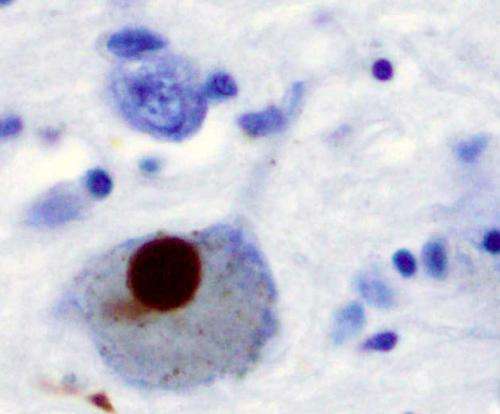Early weight loss in Parkinson's disease patients may signify more serious form of disease

A study led by a Massachusetts General Hospital (MGH) investigator finds evidence of an association between weight loss in patients with early Parkinson disease and more rapid disease progression. While weight loss is common in Parkinson's patients, results of the study - which is being released online prior to publication in the March issue of JAMA Neurology - could suggest that weight loss early in the course of the disease signifies a more serious form of the neurodegenerative disorder.
"I suspect we may be looking at several subtypes of this disease," says Anne-Marie Wills, MD, of the MGH Department of Neurology and Neurological Clinical Research Institute, lead and corresponding author of the JAMA Neurology paper. "The patients who experience early weight loss appear to have a more severe, systemic form of the disease, possible due to involvement of the neuroendocrine system or the gastrointestinal nervous system, while those who gained weight may have a milder form of the disease."
While previous studies have found that a higher body mass index (BMI) - a measure of weight relative to height - is associated with improved survival in Huntington disease and amyotrophic lateral sclerosis (ALS), no published study has examined the relationship of weight to disease progression and survival in Parkinson disease. Wills and her co-authors from eight other U.S. research centers examined data collected in conjunction with an NIH-sponsored clinical trial conducted from 2007 until 2013 to investigate the use of creatine to treat early-stage disease. That trial enrolled more than 1,700 patients who were within five years of diagnosis and from 90 days to two years after beginning treatment with dopamine-releasing drugs and was stopped early when creatine treatment was found to have no benefit.
Data required for the current study - including annual height and weight measurement and results from the Unified Parkinson's Disease Rating Scale (UPDRS) covering the three to five years of trial enrollment - was available for 1,673 study participants. For 77 percent of the participants (1,282), BMI remained stable during the study period; 158 participants (9 percent) experienced weight loss, and 233 (14 percent) actually gained weight. Those who lost weight during the study period showed a greater average increase in UPDRS score - indicating a worsening of symptoms - both in terms of motor symptoms and overall than did those whose weight remained stable. Participants who gained weight had the smallest annual increase in UPDRS scores. There was no significant difference in survival among the three groups, but that may reflect the fact that participants were in the early stages of their disease.
The authors note that it is not currently possible to determine whether maintaining or even increasing weight might help slow disease progression, although this hypothesis was supported by a 2014 interventional study in ALS also led by Wills. "Since this is just the first observation of this association in Parkinson's, we cannot recommend any changes to standard clinical care right now," she says. "But in my own practice, I try to prevent weight loss in patients, and I would recommend providers to be attentive to weight changes in their patients, even early in the disease." Wills is an assistant professor of Neurology at Harvard Medical School.
More information: JAMA Neurology, dx.doi.org/10.1001/jamaneurol.2015.4265
















